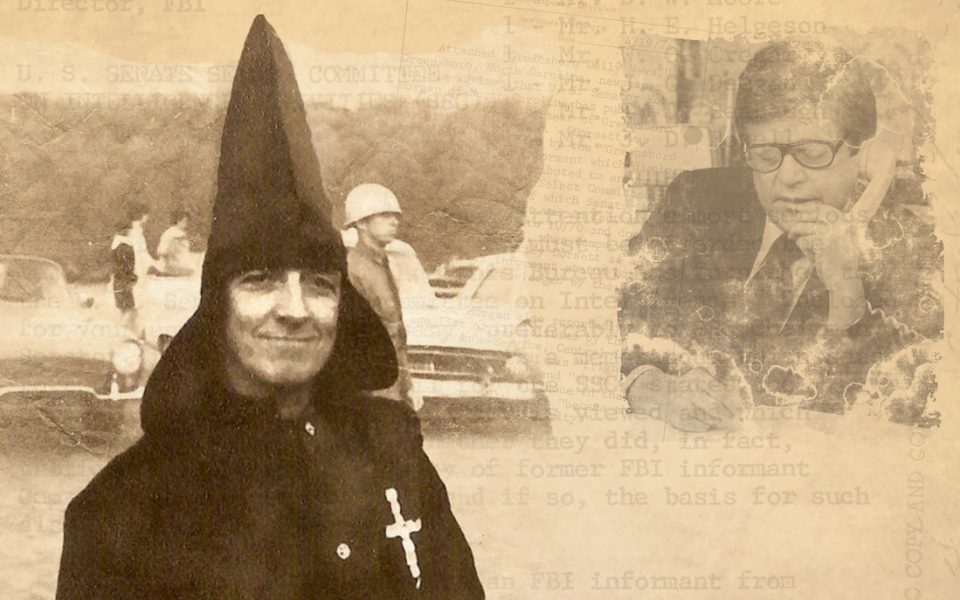by Jordan Green
Crystal Bright is, hands down, the most fearless and original music artist currently working within the social orbit of Greensboro. She’s recently been living and working in a loft in downtown Reidsville in a kind of woodshedding period, secluded from the broader social milieu of the city, and taking succor from creative peers.
Over the past 18 months, Bright has made frequent forays to On Pop of the World Studios in Greensboro to record the 13 tracks that comprise The Absolute Elsewhere, with occasional live appearances alongside her band. Rather than write a batch of songs and then record them all in one session, she went in to record as she completed one or two, working with engineer Randy Seals to flesh them out through a careful layering of tracks from various guests.
The Absolute Elsewhere, which was released in November, is Bright’s most introspective, deliberate and cerebral work to date. As with her first three records, the new album is released under the name Crystal Bright & the Silver Hands. But from a musical standpoint, it’s her least collaborative work. Guitarist Diego Diaz, the band’s mainstay over the past four years, plays on about three quarters of the tracks, with gypsy jazz and classical guitarist Kevin Dollar lending additional chops. Seth Oldham, the Silver Hands’ concert drummer, plays on only one track on the album, with Seals handling much of the percussion in his stead. Guest players such as double-bassist and cellist Robbie Link and Boston klezmer violinist Jonathan Cannon fill out the roster.
Like Muses and Bones, her first full studio album, Bright wrote all the lyrics and music to The Absolute Elsewhere. Her collaborative process this time around is not so much musical, but transcends music altogether. Bright told me that she hasn’t been listening to a lot of music lately, with the exception of Norway’s Katzenjammer and Megan Jean & the KFB of South Carolina — who share her phantasmagoric dispensation — and Warsaw Village Band, a Polish group that is similarly focused on translating folk traditions into contemporary music. The 13 songs on The Absolute Elsewhere are each inspired by images from Rusty McDonald of DividingME Photography, who provided cover art for two of Bright’s previous albums.
McDonald’s sepia-toned photographs depict an imagined world of haunted characters that is unhinged from conventional time. They mesh well with the Tim Burton-inspired sonic landscape of Bright’s music. Jim Boitnott of Notion Music Software, who is credited as co-producer, sat down with Bright and selected the images, and the two then discussed the appropriate vibe or key for the songs. Some of the images sent Bright on assignment to research a variety of topics, including Sherlock Holmes (“The End”) and animal communication (“Forest of Dreams”), while others connected personally with the artist, yielding meditations on self-doubt and personal strength such as “Fall of the Seraph” and “Torment.” Though not directly tied to McDonald’s artistic vision, songs like “Choke” and “Earth Above My Roots” spring from Bright’s longstanding interest in ecology and the resilience of nature over the messy imposition of humanity.
For an artist like Bright, there is no way but forward. Revisiting past triumphs too often invites stagnancy, while forcing oneself into new modes raises the stakes and increases the risk of failure. Each route is perilous in its own way. The understated music and precise vocal phrasings on The Absolute Elsewhere demand close listening, and it’s possible that over repeated listenings the album’s appeal with grow.
And yet, hearing The Absolute Elsewhere makes one yearn for the folkloric brilliance, spontaneity and group dynamic of Bright’s 2010 debut album, the carnivalesque beauty of 2011’s Muses and Bones, and the explosive, shamanistic quality of her 2013 live album. The Absolute Elsewhere sounds studied, in comparison. In fairness, a Crystal Bright & the Silver Hands concert is a transporting event, and perhaps some of the songs will take on a new life when incorporated into the ritualistic experience of live performance.
While The Absolute Elsewhere sometimes sounds like fragments of a film or stray pages from a long out-of-print tome, there’s no question that it conjures a fantastic realm that offers a refuge from the everyday world.
“One of the biggest surprises for me about playing music is the effect that it has on people,” Bright told me. “The past couple times I’ve played, so many people have come up to me or I’ve heard from other people — some people are caught up in what feels like a mundane world, and to be able to go into this magical place, it might feel like you’re in your childhood with magical things happening. It’s not an everyday thing. Folktales can transport you into this place beyond the material world. There’s more to life than the material world, of course.
“Someone came up to me and said, ‘I cried when I heard your music; I’ve never done this before — never reacted to music like that,’” Bright continued. “I don’t know if it’s relief or connecting with the story in the song. That’s great. I’ve felt that way with certain music before. That’s the whole point — to bring people together.”
Join the First Amendment Society, a membership that goes directly to funding TCB‘s newsroom.
We believe that reporting can save the world.
The TCB First Amendment Society recognizes the vital role of a free, unfettered press with a bundling of local experiences designed to build community, and unique engagements with our newsroom that will help you understand, and shape, local journalism’s critical role in uplifting the people in our cities.
All revenue goes directly into the newsroom as reporters’ salaries and freelance commissions.


Leave a Reply